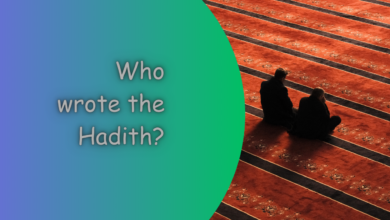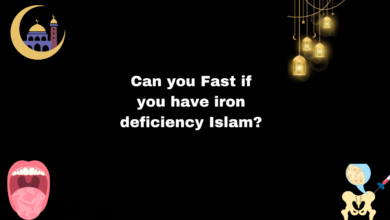Does Islam believe in Noah’s ark?
The Islamic Belief in Noah's Ark: A Tale of Faith, Obedience, and Divine Mercy
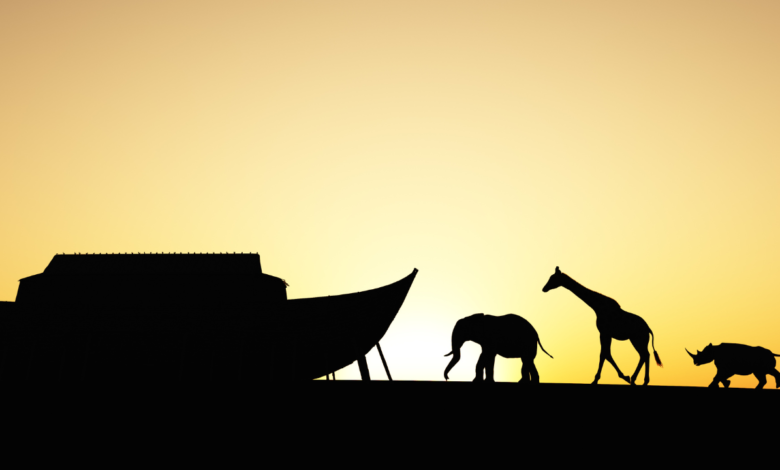
Does Islam believe in Noah’s ark?
Yes, Islam does believe in the story of Noah’s Ark. The story of Noah (known as Nuh in Arabic) and the Ark is an important narrative within Islamic tradition, mentioned in the Quran and various Hadith (sayings and actions of the Prophet Muhammad).
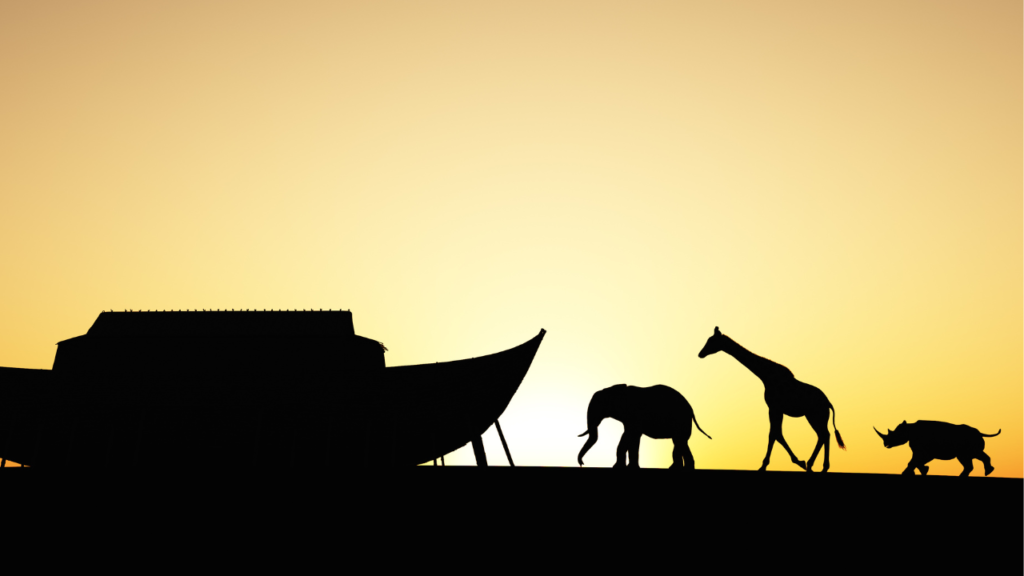
Introduction
The story of Noah’s Ark is a timeless narrative that transcends religious boundaries and cultural divides. Across various cultures and faiths, the tale of a catastrophic flood and a massive vessel that carried animals to safety has captured the imaginations of countless generations. In Islam, the story of Noah’s Ark holds a significant place, reflecting themes of faith, righteousness, and divine mercy. This article delves into the Islamic belief in Noah’s Ark, exploring its significance and impact within the context of Islamic teachings.
Also Check
- Can you chew gum while Fasting Islam?
- Can you lie to hide your sins in Islam?
- what does Islam say about aliens?
- what do Islam celebrate at christmas?
- Is Halloween Haram in Islam?
The Story of Noah’s Ark in Islamic Tradition
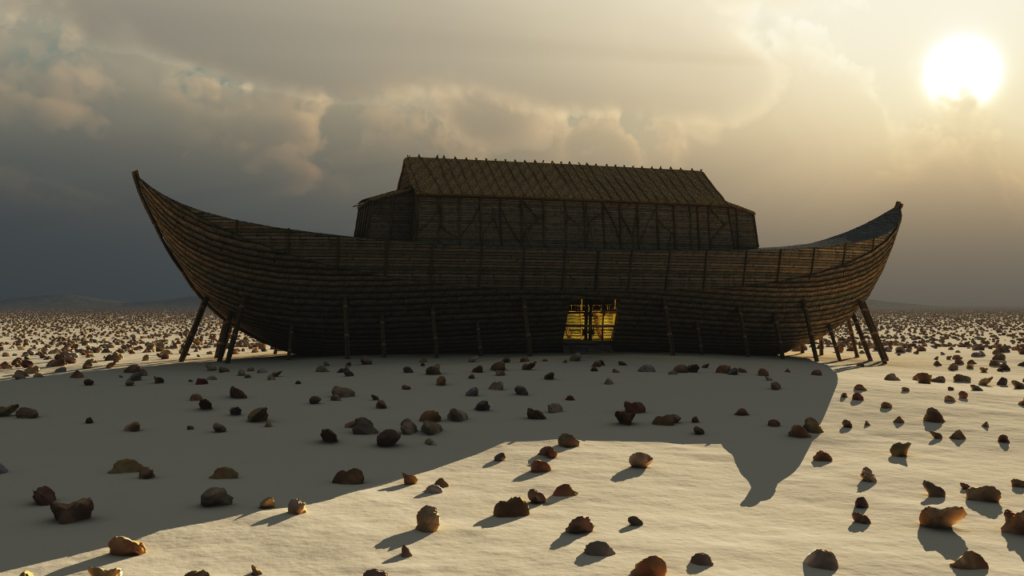
The story of Noah’s Ark, or “Nuh” as he is known in Arabic, is recounted in several chapters of the Quran, Islam’s holy scripture. Most notably, the story can be found in Surah Al-Qamar (Chapter 54), Surah Al-A’raf (Chapter 7), and Surah Hud (Chapter 11). According to Islamic tradition, Nuh was a prophet sent by Allah (God) to guide his people back to the path of righteousness. Over time, his people deviated from the true faith, indulging in idol worship and other sinful acts.
As a response to their disobedience and refusal to heed Nuh’s warnings, Allah decreed a great flood that would cleanse the Earth of corruption and give humanity a fresh start. Nuh, guided by divine revelation, was commanded to build an ark to save himself, his family, and a pair of every kind of animal to repopulate the Earth after the floodwaters receded. The ark became a symbol of refuge, faith, and obedience to Allah’s commands.
Lessons and Significance
The story of Noah’s Ark carries multiple lessons and messages that resonate with Islamic teachings:
- The Importance of Obedience: Nuh’s unwavering obedience to Allah’s commands despite the mockery and rejection from his people exemplifies the value of staying faithful in the face of adversity.
- Divine Mercy and Punishment: The story underscores Allah’s dual nature of mercy and justice. While the flood was a form of punishment for the corrupt, it also showcased Allah’s mercy by providing a means of salvation to those who followed Nuh’s guidance.
- Repentance and Redemption: The story emphasizes the concept of repentance. Nuh’s call to his people was not just a warning of impending doom, but also an invitation to repent and return to the right path.
- Unity and Diversity: The selection of pairs of animals symbolizes the diversity of Allah’s creation and the importance of maintaining harmony and balance in the natural world.
Interpretations and Symbolism

Islamic scholars have offered various interpretations of the story’s symbolic significance. Some view the ark itself as a symbol of the ultimate sanctuary, representing the spiritual safety of those who remain faithful to Allah’s guidance. The floodwaters, in this interpretation, symbolize the trials and tribulations of life that can be overcome through faith.
Furthermore, the story serves as a reminder that divine guidance has been continuously sent to humanity through prophets. Nuh’s role as a prophet and his patient efforts to guide his people parallel the roles of other prophets in conveying Allah’s message and guiding their communities.
Conclusion
The Islamic belief in Noah’s Ark illustrates the rich tapestry of religious narratives that contribute to the faith’s foundation. The story encapsulates themes of faith, obedience, divine mercy, and the eternal struggle between righteousness and corruption. As with other stories from religious traditions, the tale of Noah’s Ark transcends time and culture, continuing to inspire believers to reflect on the deeper meanings and lessons it imparts.
FAQs about Islam and Noah’s Ark
Does Islam believe in the story of Noah’s Ark?
Yes, Islam does believe in the story of Noah’s Ark. The story of Noah (known as Nuh in Arabic) and the Ark is an important narrative within Islamic tradition, mentioned in the Quran and various Hadith (sayings and actions of the Prophet Muhammad).
Where is the story of Noah’s Ark found in Islamic texts?
The story of Noah’s Ark is primarily found in the Quran, specifically in Surah Al-Qamar (Chapter 54), Ayahs 9-17. It is also referenced in other parts of the Quran, such as Surah Hud (Chapter 11), Ayahs 25-49.
What is the significance of the story of Noah’s Ark in Islam?
The story of Noah’s Ark carries several important theological and moral lessons in Islam. It emphasizes the themes of faith, patience, obedience to God, and the consequences of disbelief. It also illustrates the concept of God’s mercy and the ultimate justice that prevails.
How does the Islamic account of Noah’s Ark compare to other religious accounts?
The Islamic account of Noah’s Ark shares similarities with the accounts found in other Abrahamic religions, such as Judaism and Christianity. However, there may be some differences in the details and emphasis. Islam, like Judaism and Christianity, portrays Noah as a prophet chosen by God to warn his people and build an Ark to save a select group from a great flood.
What is the story’s basic narrative in Islam?
In Islam, Noah is chosen as a prophet to guide his people towards monotheism and righteousness. Despite his efforts to convey God’s message, most of his people refuse to believe. God commands Noah to build an Ark to save those who believed in his message and a pair of each animal species. A great flood ensues, and the Ark eventually lands on a mountaintop. After the flood recedes, Noah’s people are wiped out, and the survivors, including Noah’s family, repopulate the Earth.
Are there any specific teachings or lessons from the story of Noah’s Ark in Islam?
Yes, the story of Noah’s Ark teaches various lessons, such as the importance of faith and trust in God’s guidance, the consequences of disobedience and disbelief, the concept of divine mercy, and the idea that prophets are chosen by God to deliver His message and guide humanity.




